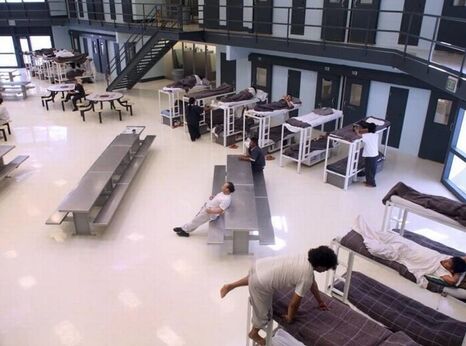Free families kept in immigration detention

US Immigration and Customs Enforcement (ICE) is detaining nearly ninety families at three facilities in Pennsylvania and Texas. COVID-19 was confirmed in family detention centres as early as June, placing all detained families at grave risk due to inadequate hygiene and negligent medical care. ICE has the legal authority to release families together and has historically done so but this time is choosing not to exercise its authority.
Ana* (22) and her daughter Victoria* (4) fled Honduras after repeated threats against their lives after her partner (Victoria’s father) was killed because of his political beliefs. ICE was informed multiple times that Victoria is asthmatic and particularly at risk for COVID-19 but refuses to release them. Ana has been suffering from ovarian cysts that have pained her daily for months and has not received the appropriate medical care. Victoria now has anxiety attacks, nightmares, and wets the bed—something she didn’t used to do.
Marilin* (31) and Yunior* (11) escaped years of violence in Honduras from Marilin’s ex-partner and a criminal organization. Yunior developed a stomach infection in detention and lost so much weight he now weighs less than he did a year ago. Marilin has ovarian cysts but has yet to be seen by a gynaecologist. She has high blood pressure and prediabetes, feels chest pain and sometimes at night her body trembles. She is convinced she will die in detention and called her family to lay a makeshift will, to make sure someone will step up to take care of her son if she dies.
Juana* (45) and Norma* (4) fled Honduras with Juana’s other daughter Paula* after gang members threatened them with rape and murder. They were separated at the US border. Paula was sent to Mexico under the unlawful “Remain in Mexico” policy, while Juana and Norma were thrown into detention. The uncertainty of Paula’s fate weighs heavily on Juana. Juana suffers from joint paints, high blood pressure, and obesity. The stress of it all had made her lose a significant amount of weight. Norma has grown despondent, depressed, and constantly asks when they are getting out. Juana doesn’t know how to answer her anymore.
These mothers recently faced an anniversary no parent would want: one year of detention with their children.
In May 2020, ICE presented detained parents with children as young as one-year-old an impossible “binary choice”: separate from their children, who would be released to sponsors while the parent remains in indefinite detention facing possible deportation or stay detained together indefinitely. Amnesty International USA released the report briefing, “Family Separation 2.0: ‘You aren’t going to separate me from my only child,” with testimony from parents.
Under international law, the US government has an obligation to ensure that the human rights of migrants and asylum seekers are respected, protected and fulfilled. The US government also has an obligation to ensure that children are detained only in exceptional circumstances, and for the shortest possible amount of time. International standards, including instruments to which the USA is a party, contain a strong presumption against the detention of migrants and asylum seekers. The International Covenant on Civil and Political Rights (ICCPR) clearly sets out the right to be free from arbitrary detention. Detention of asylum-seekers should only be a measure of last resort, after other non-custodial alternatives have proven or been deemed insufficient in relation to the individual.
Families must all be immediately released together. They have communities waiting to welcome them. There is no reason not to release children with parents. The alternative, to separate families and only release children, is unacceptable. Family separation produced by a coercive “choice” violates multiple human rights, including the right to family unity, the right to liberty, and the requirement to prioritize the best interests of the child.